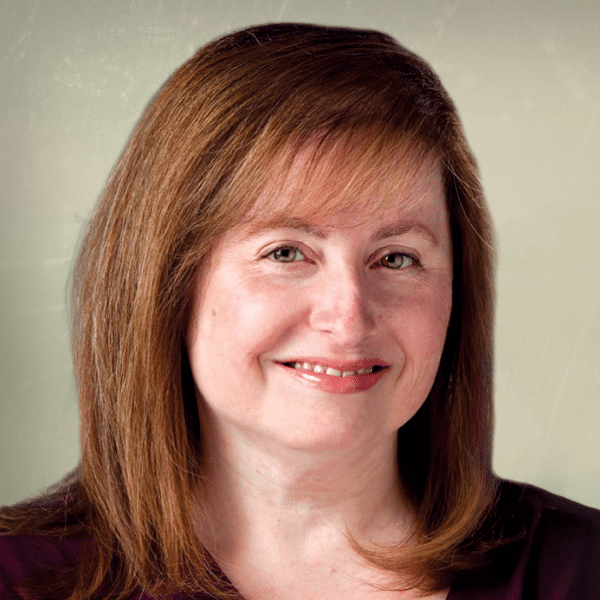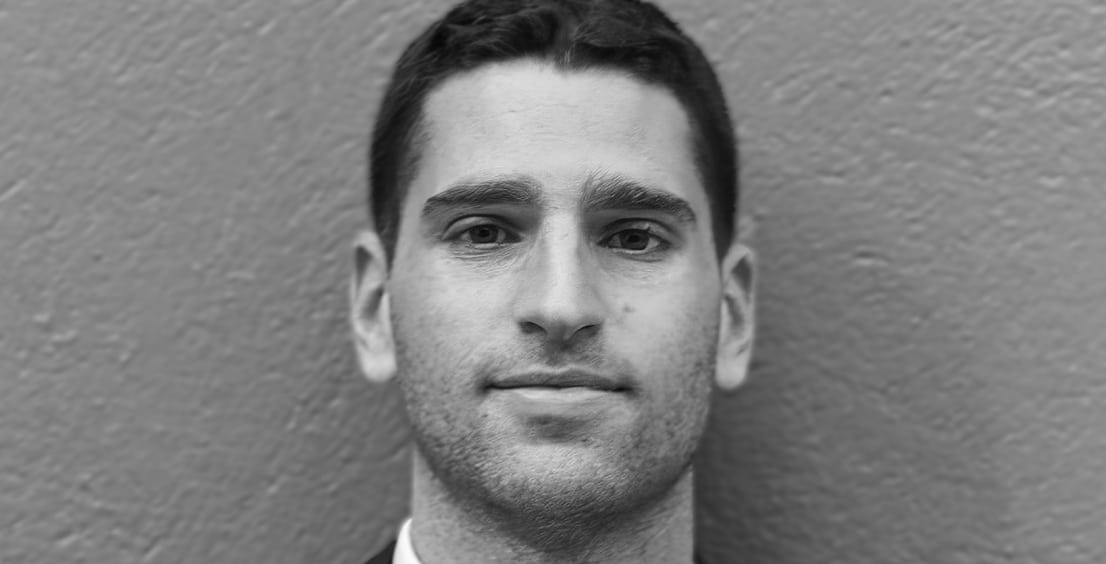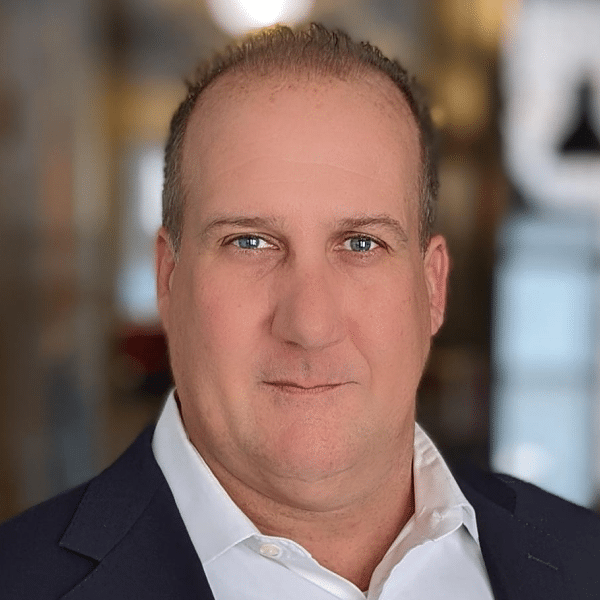SEO & AI: Evolution Or Extinction?
Gareth Cunningham
Director of SEO at Mod Op

Gareth Cunningham joins Tessa Burg on the Leader Generation podcast to challenge the notion that SEO is dead due to AI advancements.
“There needs to be a systematic leap taken forward in the search experience and I think that AI facilitates that.”
Gareth, a search expert, argues that the integration of AI into SEO is not entirely new. Google already uses AI and machine learning to optimize search results, detect spam and match content with search intent. He views AI as an enhancement to SEO rather than its replacement.
Don’t miss this exchange. It promises forward-thinking ideas about search and optimization that you can apply to your own digital marketing.
Highlights From This Episode:
- Impact of Generative AI on SEO
- Evolution of search strategies
- Shifts in SEO practices
- UX/UI integration with SEO
- Semantic web and authority
- Future directions in search technology
- Role of Google in shaping search trends
Watch the Live Recording
Tessa Burg: Hello, and welcome to another episode of “Leader Generation,” brought to you by Mod Op. I’m your host, Tessa Burg, and today I am joined by our director of search, Gareth Cunningham. Gareth, thanks so much for being with us today.
Gareth Cunningham: Nice to be invited onto the show. I’ve been excited to get on with you.
Tessa Burg: We have been excited to have you because the advent of generative AI certainly has had an impact on search, some of it perceived, some of it real. So let’s, before we jump into that, though, Gareth, you have such an incredible story and background. Tell us a little bit about yourself and your role here at Mod Op.
Gareth Cunningham: So, yeah, some would say that it would be an interesting background. I used to be a commercial diver. I used to work in oil rigs in the North Sea and in South Africa. And I moved to Glasgow, Scotland, and I kind of fell into marketing and over the years, then, we expanded. We opened offices in Orlando and were then acquired by Mod Op about 13 years ago. So, yeah, it’s been fun. It’s been fun watching the changes, the different acquisitions, and how much we’ve grown.
Tessa Burg: It’s interesting that you fell into marketing and search was the discipline you chose. That is the same discipline I also chose to get out of development, maybe not get out of it, but I did intentionally want to get closer to the data and to the decision-makers. And I felt like search was playing such a big role, especially, you know, even in the late ’90s before Google and in the early 2000s in how businesses generated revenue and how they got attention and it was really exciting. So, what are you seeing today? I feel like we’re going through another massive wave for the role of search. What has the impact of generative AI been on search engine results and search engine optimization?
Gareth Cunningham: I think that the number one thing that I see within this new landscape of searches is that there’s an infinite, now, opportunity set in front of us. I think that historically, anything that Google has ever brought out was always kinda nuts and bolts. But this is a different paradigm shift that we’re seeing. But it presents a lot of opportunities around not just for design development, but I think that for speed of implementation, which has a direct impact on the success or failure of our clients. And I think that the litmus test needs to always be the most efficient and effective way to increase whatever the benchmark is for the client.
Tessa Burg: Since the launch of ChatGPT, have you noticed any difference in the type of results that Google is serving on the search engine results page as more content has begun to flood the internet?
Gareth Cunningham: Yes, whenever ChatGPT was pushed, I kind of, or the department noticed that there were a lot more smaller micro-updates that were pushed as well around helpful content, which we noticed was a lot of websites out there that just had lots of content but didn’t really, it was just content for content’s sake. Overnight, it was kinda cut. And I think that what Google was doing was Google was trying to really usher in this element of trustworthiness throughout the content that you’re producing. And I think that they were kind of maybe in a way making room for this generative AI technology to start to come into its own. And I think that while AI is not 100% perfect, I think that, you know, I think there are enough stories out there to suggest that if you give it a problem, it will give you a very, very good solution. So I think that Google’s kind of maybe clearing house a little bit to make way for this here, which is an opportunity for clients and for Mod Op as a whole.
Tessa Burg: So when we look at the opportunity for clients to make the most of it, does it change anything about the on-page optimization formula? You know, like in the past, it’s been really important that you research the right keywords, that those keywords go into specific places and have specific HTML tags for emphasis. And does it change anything about how sites are architected?
Gareth Cunningham: I think we still need to, the straightforward answer is I don’t think so. I think that the jury is out with a lot of this stuff. I don’t think that Google is in maybe the business of making big wide sweeping changes that kind of affect how the internet architecture actually works and how human interaction with a website works. And I think that that filters down through into, but there’s still gonna be elements of the webpage, the title tag, the URL structure, the H1s, the body text, the image assets on a page, they’re still gonna need to be in that format to allow for kind of the traditional way that people work within the web now to continue. But then I think that there is gonna be an evolution of these elements on the page that’s gonna change because AI’s here.
Tessa Burg: Yeah, I agree. And I always felt that really best practice for SEO was also best practice for accessibility and UX/UI. I know that there always seems to be this conflict between UX/UI or SEO, but really, when the two work together, you know, Google cares about quality content, they care about quality engagement, so they care about user experience and they also want sites that are reputable to take up the most space because that is where the integrity, the content with integrity lives. So I agree. I think a lot of the elements are important.
Gareth Cunningham: Whenever Larry Page and Sergey Brin first concepted and designed the algorithm of Google and the way in which they wanted to class end users and value around the web, and its format’s very simplistic, but you mentioned a really good point there, that there’s so many just different cross-sections where traditional SEO intersects with other marketing disciplines and departments that make a key linchpin in a lot of the decision making that clients are faced with these days. And I think that off-page and on-page SEO, while it is in kind of a semi-state of flux at the minute because of, you know, generative AI, ChatGPT, content, the structure of a page, I think that over time, this battle between form and function will be resolved because I think that we are ultimately moving to a 100% semantic web where everything coexists equally. How they define authority, I have my own unqualified thoughts around that, but I think that they’ve been baked out by some of the things that Google has done in the past.
Tessa Burg: Yeah, I feel like the hunt for authority is always ongoing and what is, you know, who should be at the top? What is the most authoritative content? But a rule of thumb that I felt has always served us well, and I remember one of those, one of the big algorithm changes was around like, maybe it was 2006, 2007, and I was working at American Greetings and, like, all of our affiliate websites tanked. And I’ve always had a love-hate relationship with affiliate marketing because, you know, they feel like they play a really important role ’cause they know how to, I don’t know, trick or master the algorithm of Google and they’re, quote, unquote, better at marketing that product than the people who create the product. And we looked at the backend, they were taking way too much credit for sales. Anyway, I won’t go down the rabbit hole. Didn’t love it. But what I did love was when that algorithm change hit and all of those sites went down because their content was not high quality. They were stuffing, you know, back in the day, they were stuffing, they were changing the words, different colors, and what I think marketers still need to focus on and maybe the nitty-gritty of SEO, like, it has to be these words, it has to be in that order, you have to do, every single page has to be redirected this exact same way, maybe some of the exactness is not as high as a priority as quality and how much it serves your audience, because, you know, the semantic web, the content formats you’re going to select are the ones that your audience needs, wants, and is looking for. It doesn’t necessarily mean I now have to master all the small technical details, because I do think with AI, Google is gonna get smarter at picking out who’s making content for content’s sake versus who’s making it and people are consuming it because they need, want, and desire it.
Gareth Cunningham: Exactly, I think that, yeah, you hit on something very important there and very relevant for this phase of the web is that a lot of the agencies, particularly Mod Op, UI/UX, user experience is extremely high on our focus radar. And I think that as time has evolved through and the changes have come out, some of the things that happened in the past with different filler and core algorithm updates has dictated the way in which the experience needs to be across the different platforms. And what I mean by that is UI/UX needs to have a cousin called search experience where it interacts seamlessly with the other environments, may that be PR, may that be social media, paid media, organic or direct, or email or whatever the medium of marketing is to bring the end user back to that central hub, which is your website, and to get them into that immersive experience. I think that those two parts are, those two polar opposites need to be in exact sync just like the North and the South Pole.
Tessa Burg: Yeah, I agree. And that is a large part of, you know, bringing the user experience forward, bringing the data from search forward, that I think, and I don’t know, that you wanna change the name of the group you lead here at Mod Op.
Gareth Cunningham: That’s correct.
Tessa Burg: Tell us a little bit, ’cause you’re a man of intention, so I know that this isn’t just because you feel like names are cool, but what does a name change in the world of SEO mean for Mod Op, but really also mean for the direction of SEO as a discipline?
Gareth Cunningham: I think the first thing that it does, the name change, shows an evolution. It shows that what it was then is not what it is now, but it is a combination of upgrades. I think that with a name change, what it gives specifically is more of a user-centric approach where it kinda drives that user-centric diverse approach to everything that we do where we are the cross-section, the intersection, of everything you see on the website and everything you see off the website and everything that the end user gets to see. And I think that to stay within the realms of the acronym SEO, I think that what it does is it puts you firmly into the same playground as Blockbuster. Blockbuster is no longer around. We have Netflix and we have Apple TV and things like that. I think that there’s a natural progression to kind of the name change.
Tessa Burg: I think what I like about it is search is really people asking questions and asking questions about problems they have, things they wanna find, what they wanna learn. And what I love when we think about search going across discipline, going across channels, is that people are asking questions and looking for support everywhere, everywhere on the internet and in physical spaces. And we know that where we’re moving technology wise is listening to people asking questions all over through different devices, through the internet, through typing, through what they put into generative search. But today, like, ChatGPT only gets 2% of the traffic that Google gets. So maybe I have too much faith in Google. I don’t expect that that is going to change. But how will what Google serves up as an answer start to evolve?
Gareth Cunningham: That’s a very good question. I think that Google needs to, it’s the same as before PPC was about. I think that Google was faced with organic and they had to figure out how do we monetize this? I think that we’re gonna see a potential blueprint where you’ll start to get some links coming through within the answers that Google gives us. But I think, ultimately, then there’s gonna be an adaptation to that where media or a paid model is brought in. What that interface looks like, knowing Google, I think it’s gonna be something, there’s gonna be an immersive experience that’s very, very similar to the one that we get right now. I don’t think that they’re gonna try and jar anybody away from Google losing the crown as being synonymous with search and search for everything and searching every single mechanism and mode. I think that that’s something that they’re gonna closely protect. But I do see a paid model. I do see whenever the answer comes, there’s gonna be maybe not just a single source of truth for this, but I think there’s gonna be maybe, look at this article, look at this website, look at this here. I think that they’re gonna give their own prompts based on what you ask.
Tessa Burg: Yeah, I could definitely see that. And I feel what ChatGPT showed us is that we all like conversation and maybe people don’t all still know what LLM means, but, you know, natural language processing is pretty cool and it makes us feel more heard and it’s a little bit more engaging. And I just heard today that Google’s Bard is actually now the number two algorithm and it’s moving up. You know, this is just from an independent group. I actually forget the name. I’m gonna have to put it in the show notes. But they surveyed about 200,000 people who voted on this. But what I think is most important is they weren’t that high and they have very quickly sort of, for lack of a better term, gotten their act together and are determined to own the experience in answering questions. And I do think ultimately they will succeed in that. And for us, it’s really about continuing to focus on how we provide the best answer based on our brand, our company, and the value that we bring to clients.
Gareth Cunningham: Agreed, 100%.
Tessa Burg: And I love that when we think about search and the search landscape and, too, bringing in content because, I mean, we have so many more formats now that we can make accessible underneath that. What are some content formats that you think, or are there any that you think will benefit from this evolution of search?
Gareth Cunningham: I think that the stepped approach to content evolution is what type of content is it? I think that if you look at just text-based content, there needs to be a systematic leap taken forward and I think that AI facilitates that. I think that the way in which we can bring value to the customer, which, you know, I think that for a long time, whenever you spoke to brands about their content strategy, it was resourcing, it was internal staffing. It was, you know, who’s gonna put it together? But I think that we’ve cleared that hurdle now. I think that we can get into a place now where content and content clusters that answer every single aspect of whatever is in the top-level navigation or the service offering or the product listing to give that informed, more in-depth understanding about what it is that you’re actually looking to acquire or interact with. And I think where content needs to move for customers is to look at your own search habits, look at how you interact with whenever you’re gonna make a purchase, you look at the reviews, you look at YouTube, you look at all the different mediums of content out there to be able to make a definitive assessment of whether you’re gonna take it on or not. And I think that to have that environment within the website I think is gonna become a lot more pivotal for success and bottom-line revenue.
Tessa Burg: Yeah, and I think marketers are starting to think about the future of content and not just text and flat. There are still a lot of clients who aren’t using schema markup. And if you’re not there, if you don’t understand that we need to provide more context around every type of content so that, you know, bots and people better understand our message, then you might also miss the boat on the role AR will have, ’cause I’ve seen now so many new tools where creating AR assets is just becoming easier and easier. Creating assets in general is becoming easier and easier. And I think, you know, you said Google’s gonna go toward this more immersive world. It’s because people want a more immersive world. And so we have to start putting this more immersive content on our radar and how do we optimize it and make it a part of our story in a way that’s accessible.
Gareth Cunningham: I think, yeah, what you just said there hits on a lot of very important points. I think that this immersive experience, every aspect of it needs to be, for want of a better term, granny-proofed where anybody can use it, anybody can interact with it. I think that you’re right that these new, you know, specific spheres of Web3 that are starting to make their way into search are very important. Like Google, I think they launched, I think you pronounce it Lumiere, where it’s text to image, which is, it creates an image in the likeness of this or bamboo or whatever. This is next-level technology. But in the use case, Google would not design and develop and bring something to market if they didn’t see it further down the line as a part of their blueprint or their white paper as being a thing that was gonna be an integral part of their search engine and use case for end users. And I think if you look at the most advanced stuff that Google brings out or any search engine brings out, just delineate that back down through and you’ll see where other places will make a change to, other parts of the marketing funnel or an experience now that will make a change.
Tessa Burg: Yeah, that’s definitely something that hasn’t changed. Search is Google’s business. Paid search is where they make their money. And I love that recommendation of, as marketers, paying attention to how those other products eventually become part of their core revenue strategy. Those are some very strong hints. So, this has been a very enlightening and deep conversation. I think to recap for our listeners is, one, SEO is not dead. It’s really important to continue to follow best practices as it relates to looking at keywords as a reflection of what’s important to your audience and how to make sure that the way you sell and message the value of your company and how you serve that audience is reinforced through your architecture, through your user experience, and through the tags that make the message more accessible. I think we have moved away from needing to be so extreme on the number of keywords and creating experiences that take away from, really, user enjoyment. So, you know, the big focus that will continue to happen is quality. And then I think another big takeaway, Gareth, that you’ve brought up is we have to start to think about, you know, where the world is going in terms of content and think about search and, you know, people asking questions and how that’s gonna be answered differently moving forward across all content streams. And that, for me, is like the most exciting. And, actually, the third takeaway, and I did find the name of that company, is, you know, ultimately Google has a ton of data. I feel like all their other products before, some of these ones that are very clearly related to content were about collecting all the data. Now they have all the data and they’re training their models. But it’s the Large Model Systems Organization that runs tests against all these different models and just recently announced that Bard had moved up to number two behind GPT Turbo. And, you know, I think we’ll continue to see Google dominate the space specifically related to answering users’ questions. Anything else, Gareth, that you wanna add?
Gareth Cunningham: No, thanks for having me. It’s been enjoyable. It’s also been enlightening to get some of the things that you think about every day and kinda where the white space is and kinda get that into a format that is out of your head. It was very enjoyable. Thank you.
Tessa Burg: Oh, yeah. And if anyone has questions for you, maybe, you know, how can they start building new skills or just wanna talk about what this means for their website and content strategy going forward, how can they reach you?
Gareth Cunningham: Just reach out directly, [email protected], and you can, any questions, if you wanna have a chat, happy to have a good chat.
Tessa Burg: And you also have some really great stories from your deep sea diving days.
Gareth Cunningham: Yeah, we can break the ice with that there and then get into the nuts and bolts of marketing.
Tessa Burg: Well, thank you. And if you wanna hear more episodes from “Leader Generation,” you can visit modop.com, that’s M-O-D-O-P dot com, and click on Podcast. You can also find our “Leader Generation” podcast page on LinkedIn. Until next time, Gareth, we’ll be talking soon.
Gareth Cunningham
Director of SEO at Mod Op

Gareth stands at the intersection of creativity and analytics in his role as the Director of SEO at Mod Op. He leverages his experience in digital marketing to shape the online presence of national and international brands. Gareth consistently delivers strategies that increase organic traffic and improve search rankings for clients. His innovative approaches and dedication to measurable results have cemented his reputation as a dynamic leader in search engine optimization. Gareth can be reached at [email protected].





